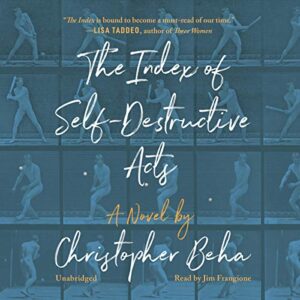Not that long ago, I was talking to somebody—at the farmer’s market, of all things—on the hot, somewhat pundit-y subject of “cultural appropriation.” I remarked to a friend that I was in big trouble, because all my favorite cultures had been appropriated.
That was a joke, of course, but there was some truth to it. The rituals, aesthetics, and observances that govern my life as an adult are almost entirely ones I’ve selected for myself, rather than inherited. (Not even five minutes ago, I took a break from the keys to text my neighbor that my husband and I would be bringing Greek vasilopita and Puerto Rican eggnog to her backyard, socially-distant New Year’s bonfire. Do I need to say that neither of us has any Hellenic or Latino heritage?)
That’s the story of America, of course—and I am old enough to remember when the notion of the nation as a “melting pot” was regarded as something positive. My mother always thought that the melting pot metaphor was an abomination, because it did not take into account what she thought of as the South’s distinct, and superior, culture.
Well, for the most part I merely endured the South as a young child. I rolled my eyes whenever my mother mentioned that Caroline was a “lovely Southern name.” Who cared? I would rather have been a Cheryl or a Lori. In the days before I knew about either William Faulkner or John Lee Hooker, all that “Southern” meant to me was a place where it was hot all the time and people were opposed to drinking and gambling.
I heard a woman remark once that she would not allow her children to watch Sesame Street, because she did not want them indoctrinated into its “liberal propaganda” of multicultural leveling and gritty urban streets. Given that I was a heavy user of Sesame Street and The Electric Company as a kid (like any 70s child ignored by adults), the indoctrination must have worked just fine on me—because from my earliest memories, the conventions and rituals of the North were exactly the thing I did want.
I wanted last names that ended in vowels, Virgins and candles and black lace veils.
I liked to dream about close urban neighborhoods where people sat on stoops and belonged to unions. When, as an adult, I converted to the Orthodox Church, I happily became a student of all the Greek, Russian, and Arab ethnic aspects of the faith that, in the United States at least, were midwifed for the most part in just the kind of urban immigrant settings about which I had fantasized.
My children’s lives have been governed by these rituals—the vasilopita on New Year’s, praying to St. Phanourious OR St. Anthony (my husband is Catholic!) when the car keys are lost.
“Mom, we’re not Arabs,” my 16-year-old son has said to me more than once when I have pronounced something haram. (Never mind the fact that Arabs, who are the dominant ethnic group of the church we attend now, are, unlike either Greeks or Russians, perfectly willing to enfold just about everybody into their joyous tradition, with a minimum of gatekeeping.) He’s fine with the faith, but thinks that my enthusiasm for some of its appurtenances is a kind of LARPing (Live Action Role-Playing).
My response would be that it’s hard to tell who’s LARPing now. The yoga teacher down the street chants in Sanskrit. All of my siblings abandoned the Southern Baptist Church and casseroles and teetotaling for High Anglican services and bottles of Opus One red. (The lone Catholic convert asks for Bushmills now, not Scotch.) The only difference from my siblings and myself is that their LARPing is a kind of aspirational Anglo-Saxon Whiteness, as opposed to Mediterranean.
The question of what Whiteness has robbed from other cultures, and particularly Black culture, is at the basis of most concern about cultural appropriation, of course—and it is an authentic history of violence and grief, no matter how many conservative cultural critics object. At the same time, I’m just as cynical about the strange, progressive kind of “Southern studies” approach that was invented by (mostly) white progressives to be more capacious—the lumping of Pentecostalism and blues music and sharecropping and bottle trees and voodoo and deer hunting into a superficial, glossy stew that mostly seems to serve regional tourist authorities for affluent retirees seeking “authenticity.” It’s enough to drive me to suburban, what-exit-are-you? Jersey.
Can you ever take on something not inherited and it be authentic? What am I now, white girl turned middle age, decades from a middle-class childhood in the Southern Baptist Church, my own cultural tastes assumed and aspirational?
The difference, I think, is the effort to live into a vocabulary, and into a culture, with humility. In that sense, the lessons of spiritual practice—of basic asceticism—can serve well. That’s been my goal in all the Orthodox churches I’ve been part of.
But it is perhaps even more a task in the African-American-majority county where my family has now lived for fifteen years—a place that was routinely stigmatized in the local press when it was a “redneck white” suburb, and is still so now that, for decades, it is has been largely Black, professional, and affluent. Living here, I have learned lessons I would not have ever learned anywhere else about the difficulties of seeking to succeed, and all the credit that has never been given.
It has been good to be a minority, and I have been positively shaped by the dominant culture and power structures belonging to others—who, having persisted through fire, deserve to have it. It, too, is a part of the person I am becoming.
Let me keep an open hand, both to assume culture and to receive it. Inshallah.
Caroline Langston was a regular contributor to Image’s Good Letters blog, and is writing a memoir about the U.S. cultural divide. She has contributed to Sojourners’ God’s Politics blog, and aired several commentaries on NPR’s All Things Considered, in addition to writing book reviews for Image, Books and Culture, and other outlets. She is a native of Yazoo City, Mississippi, and a convert to the Eastern Orthodox Church. She lives outside Washington, D.C., with her husband and two children.





